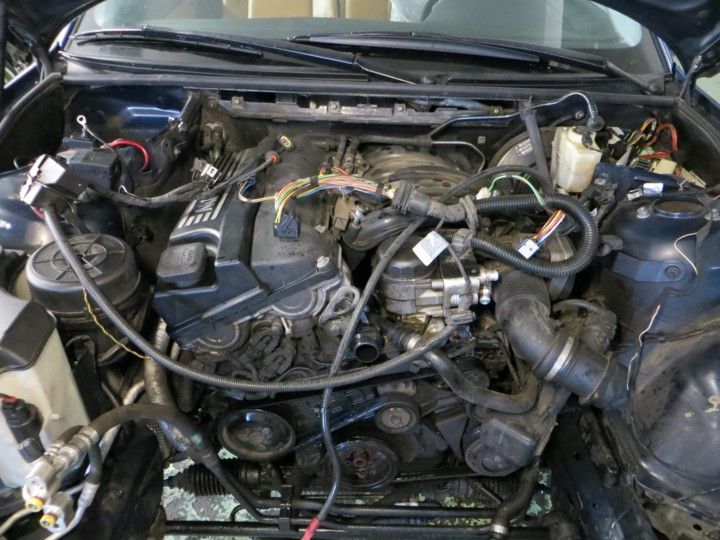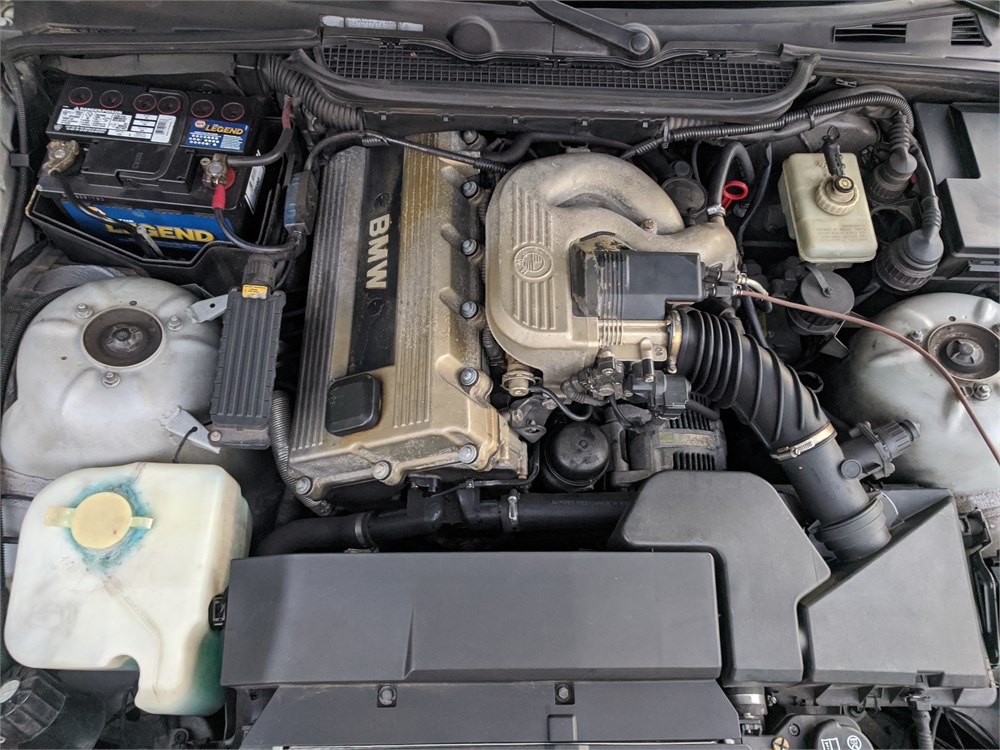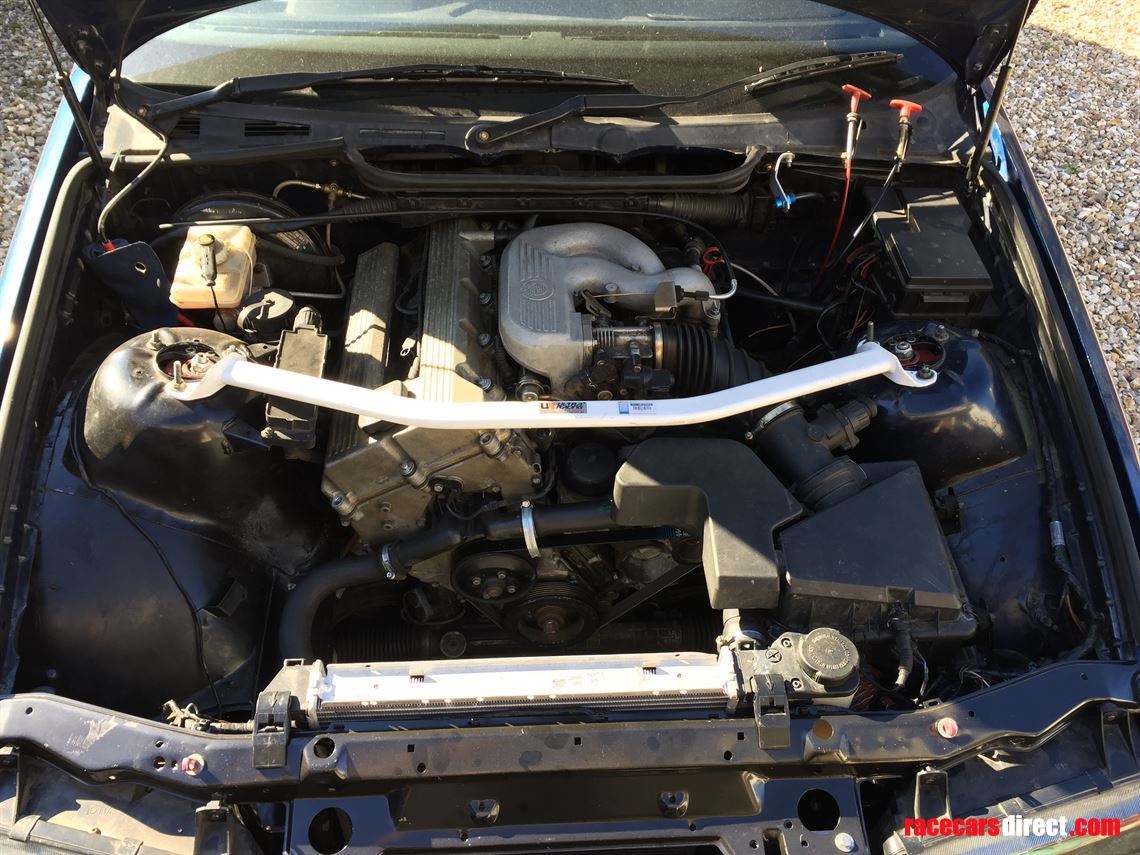Why the BMW 318ti Is a Leading Choice for Automobile Enthusiasts
Wiki Article
Vital Considerations for Picking the most effective Engine for Your Requirements
In the realm of choosing the ideal engine to fulfill your needs, a number of essential factors need meticulous consideration to ensure optimal performance and effectiveness. From the nuanced equilibrium between power and performance to the often-overlooked aspects of maintenance and service requirements, each element plays a crucial duty in determining one of the most ideal engine for your certain needs. As the intricacy of engine technologies remains to progress, discerning the most fitting choice necessitates a deep understanding of the interaction in between various factors to consider. By discovering the detailed internet of factors that underpin this decision-making procedure, a clearer path emerges in the direction of picking an engine that not just satisfies but exceeds your expectations.Power and Efficiency
When examining engines for optimal efficiency, it is critical to focus on both power output and efficiency. Power outcome determines the ability of an engine to create power, which straight impacts its efficiency. A high power output is important for demanding tasks such as high-speed needs or durable applications. It makes certain that the engine can manage the work efficiently and effectively. Nevertheless, power alone is not enough; performance plays a significant duty in identifying the total performance of an engine. Efficiency refers to just how well the engine converts gas right into functional energy. An extra efficient engine will certainly deliver better gas mileage, lower exhausts, and reduced operating expense. Striking the right equilibrium between power outcome and efficiency is crucial to selecting an engine that meets your certain needs. When making this decision, it is important to take into consideration variables such as the intended use of the engine, ecological influence, and lasting cost ramifications. By carefully reviewing both power and effectiveness, you can select an engine that supplies ideal performance and fulfills your requirements properly.Gas Efficiency and Economy
In the realm of engine choice, the consideration of fuel performance and economic climate holds critical significance. Gas performance refers to the engine's ability to convert gas into energy with minimal waste, directly influencing operating costs and ecological sustainability. bmw 318ti. When choosing an engine, assessing its gas economic situation is vital to determine long-lasting cost savings and environmental influence. Engines with higher gas effectiveness not only decrease fuel costs however also lower carbon discharges, adding to a greener operation.

Compatibility and Application
Taking into consideration the fuel effectiveness and economy of an engine, the next crucial facet to address is its compatibility and application within specific functional contexts. Compatibility refers to how well the engine incorporates with the general system or tools it powers. It involves variables such as physical dimensions, mounting choices, electrical interfaces, and control systems. Making sure compatibility is vital to avoid issues such as getting too hot, vibrations, or power click here for more info discrepancies (bmw 318ti).In addition, the application of the engine is just as essential. Various engines are made for specific purposes, whether it be industrial equipment, marine vessels, autos, or power generators. Recognizing the designated application permits for the selection of an engine that can provide the required power output, torque, and functional features. A high-revving engine made for efficiency vehicles would not be suitable for heavy-duty building tools that calls for high torque at reduced speeds.
Upkeep and Service Requirements
Maintenance and service demands play a vital function in making sure the longevity and optimum efficiency of an engine. Routine maintenance is important to avoid malfunctions, prolong the lifespan of the engine, and keep its effectiveness. When picking an engine, it is very important to take into consideration the manufacturer's recommended maintenance timetable and the schedule of service facilities or qualified technicians.Variables such as the frequency of oil changes, filter replacements, and total assessments can dramatically influence the engine's efficiency. Some engines might require more regular maintenance based on their design and usage, while others may have longer intervals between maintenance checks. It is important to follow these solution requirements to prevent expensive fixings and unanticipated downtime.

Price and Spending Plan Considerations
Spending plan constraints often play a significant duty in the decision-making process when selecting an engine for a certain application. When taking into consideration the cost and spending plan ramifications of choosing an engine, it is necessary to evaluate not just the preliminary acquisition price yet also the long-lasting expenses click to investigate related to maintenance, gas consumption, and prospective upgrades or fixings. It is important to strike an equilibrium between the in advance price of the engine and its total lifecycle prices to ensure that the selected engine continues to be monetarily sustainable throughout its functional life expectancy.Variables such as fuel reliability, performance, and sturdiness can directly affect the total price of possession of an engine. While an extra find out here expensive engine may have greater ahead of time prices, it might possibly result in reduced maintenance and gas expenses over time, hence using much better worth in the lengthy run.
Conclusion

Fuel effectiveness refers to the engine's capacity to transform gas right into power with very little waste, directly influencing operating costs and ecological sustainability.Aspects influencing fuel efficiency consist of engine layout, burning effectiveness, and total performance optimization. Furthermore, picking the appropriate fuel type and quality as recommended by the engine maker can further enhance effectiveness and lengthen engine life-span.
Engines with good service functions and conveniently available components can lower upkeep costs and minimize the time the engine is out of operation - bmw 318ti. It is essential to strike a balance in between the ahead of time price of the engine and its overall lifecycle costs to make certain that the chosen engine remains financially sustainable throughout its operational life expectancy
Report this wiki page